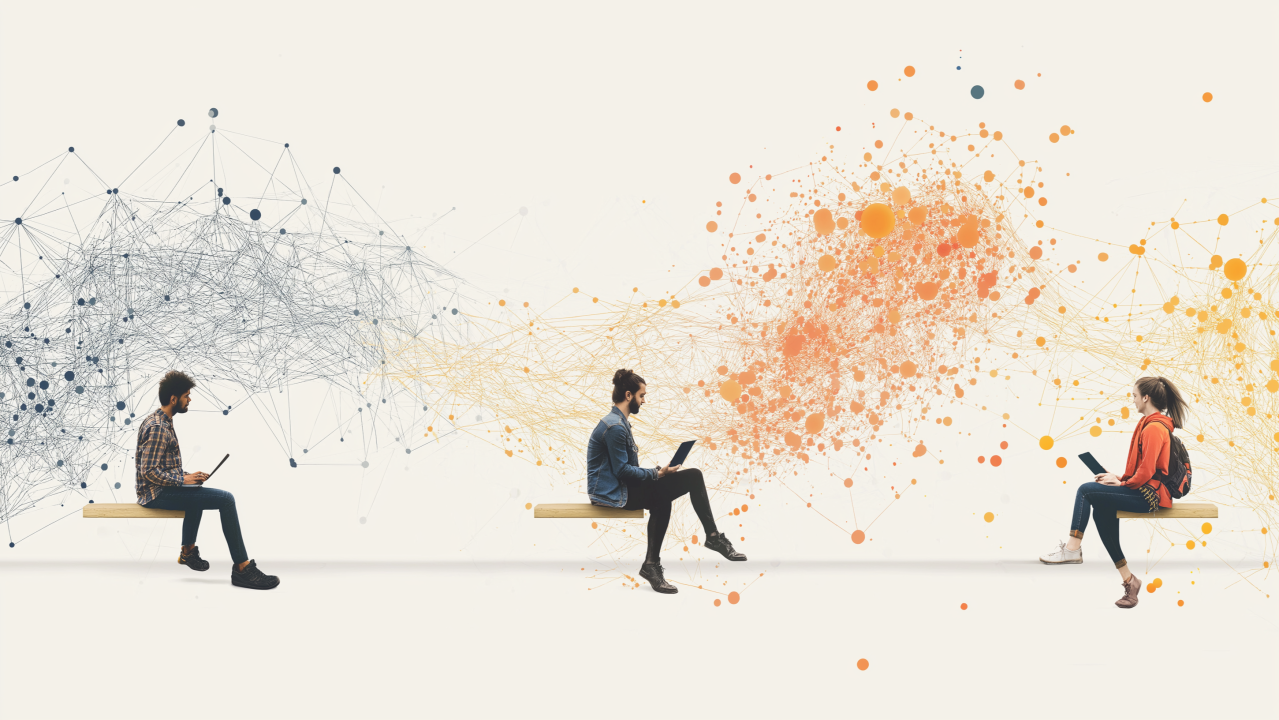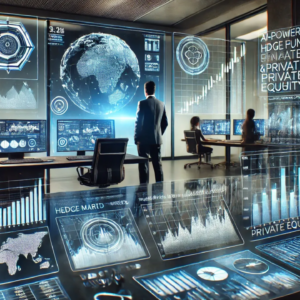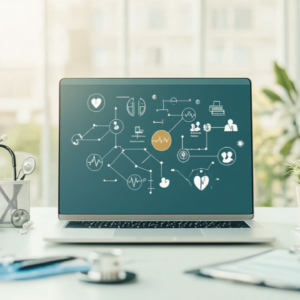Technology and Mental Health: My Digital Tug-of-War

Introduction
I'm typing this on my third screen of the day. Already checked my phone 14 times this morning (yes, I counted). Answered work emails on my tablet during breakfast. Anyone else feeling slightly called out right now? Yeah, me too.
The Digital Quicksand We're All Sinking In
Let's talk about that thing we all do but hate to admit. You know—when you pick up your phone to check the weather and somehow find yourself 47 minutes deep in videos of people remodeling vans? Just happened to me last night when I should've been sleeping. Instead, I was comparing my very average apartment to Pinterest-worthy tiny homes while my alarm clock ticked closer to morning.
The research backing up our collective digital anxiety is pretty sobering. The American Psychological Association has been watching our social media habits, and spoiler alert: it's not great news for our mental health. Turns out scrolling through everyone's highlight reels while sitting in your sweatpants eating cereal for dinner (no judgment, I did it twice this week) can make you feel... inadequate? Who would've guessed!
And don't even get me started on notifications. My phone just buzzed three times while writing that last paragraph. Each little ping fractures my attention a bit more, creating what my therapist calls "continuous partial attention" but what I call "why-can't-I-remember-what-I-walked-into-this-room-for syndrome." Yesterday I found my keys in the refrigerator. I wish I was joking.
Real People, Real Digital Struggles
My friend K called me in tears last week. Her nightly Instagram routine had morphed from casual scrolling into something that was actively hijacking her peace of mind.
"I started noticing I couldn't fall asleep without checking my phone first," she told me over coffee. "Then I couldn't stop checking it. Now I'm waking up at 3 AM panicking about notifications I might have missed. What happened to me?"
This isn't just a K problem. My buddy Sumit, raising two teenagers, looks permanently exhausted these days. "The social pressure they face online is insane," he confided during our monthly poker game, while folding a winning hand because he was distracted by his son's text. "My daughter had an anxiety attack because her TikTok only got 50 likes. How am I supposed to parent through that? We worried about completely different stuff at their age."
I relate to both of them more than I'd like to admit. Last month I deleted Instagram off my phone after I caught myself feeling genuinely depressed that my vacation photos got fewer likes than my coworker's. This is embarrassing to even write down.
When Screens Actually Save Us
But here's the thing about technology that surprised me. During those endless Covid lockdowns, my laptop became a lifeline. Those video therapy sessions helped me ride the wave of isolation without completely drowning.
And I wasn't alone. Technology gave us ways to maintain our mental health when traditional support systems vanished overnight. Sure, a pixelated face on a screen isn't the same as sitting across from someone in a comfortable office, but when the alternative was nothing at all? Those digital connections became everything.
And what about my cousin in a rural town of Oregon? Before teletherapy, her options for mental health support were basically non-existent unless she wanted to drive three hours each way. "Having a therapist I can talk to from my living room changed everything for me," she told me. "I probably wouldn't have gotten help otherwise."
Then there's my friend Andy, who struggled with crippling social anxiety even before COVID made us all weird about human contact. "Online support groups gave me community without the paralyzing fear I feel at in-person events," he explained. "I can participate fully without my anxiety drowning out everything else."
Finding My Digital Balance (Still Very Much a Work in Progress)
So where does this leave us? Personally, I've been trying to be more intentional about my relationship with technology. Some days I succeed! Other days I look up and realize I've been scrolling Instagram for two hours while my dinner gets cold.
I've set up some boundaries that help—no screens in the bedroom (mostly), turning off notifications during work hours, and my personal favorite: leaving my phone in another room when watching movies. Remember when we used to just... watch something? Without simultaneously Googling every actor and plot point? It's surprisingly nice.
But I'm curious—do you ever just sit and enjoy something without reaching for your phone? Can you even remember what that feels like? The other day I forgot my phone before a doctor's appointment and nearly had a panic attack in the waiting room before discovering they had actual physical magazines. Remember those?
The Future Looks... Complicated
The tech on the horizon both excites and terrifies me. My friend working with VR therapy programs for veterans with PTSD, and the results sound incredible. But then I think about how social media algorithms already manipulate my mood and shopping habits, and I wonder what happens when technology gets even more sophisticated at pushing our psychological buttons.
What I've realized through my own digital tug-of-war is that technology itself isn't the villain or the hero of our mental health story—it's just a tool, reflecting back our choices and values. Sometimes I use it to connect meaningfully with people I love across distances. Other times I use it to numb out and avoid my actual life.
Most days, I'm still that person who says "just one more video" before bed and then emerges from a content hole two hours later, bleary-eyed and regretful. But I'm working on it. We're all working on it, right?
I'd love to hear how you're navigating your own digital balancing act. But first, let me just check this notification real quick...
Search
Recent Posts
Categories
Popular tag
Subscribe newsletter
Register now to get updates on our promotion & coupons


